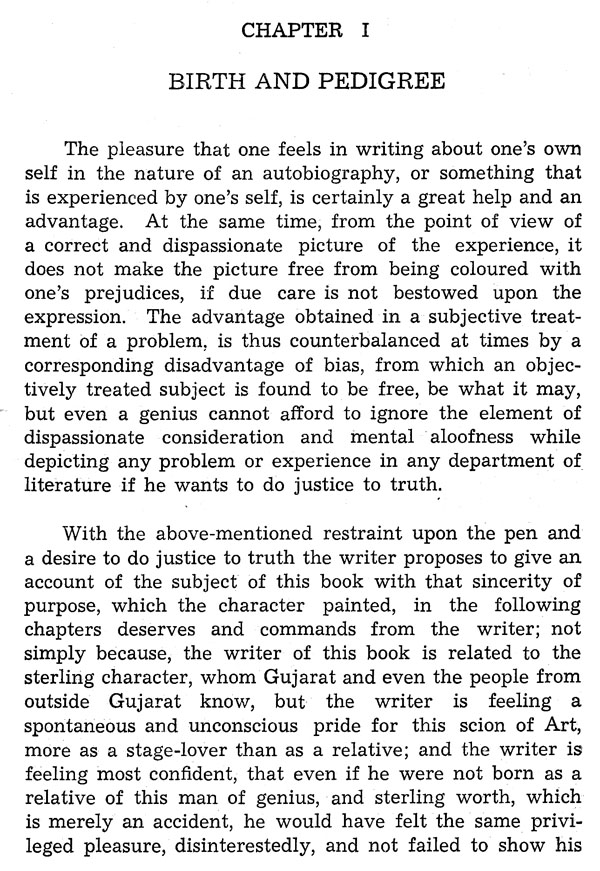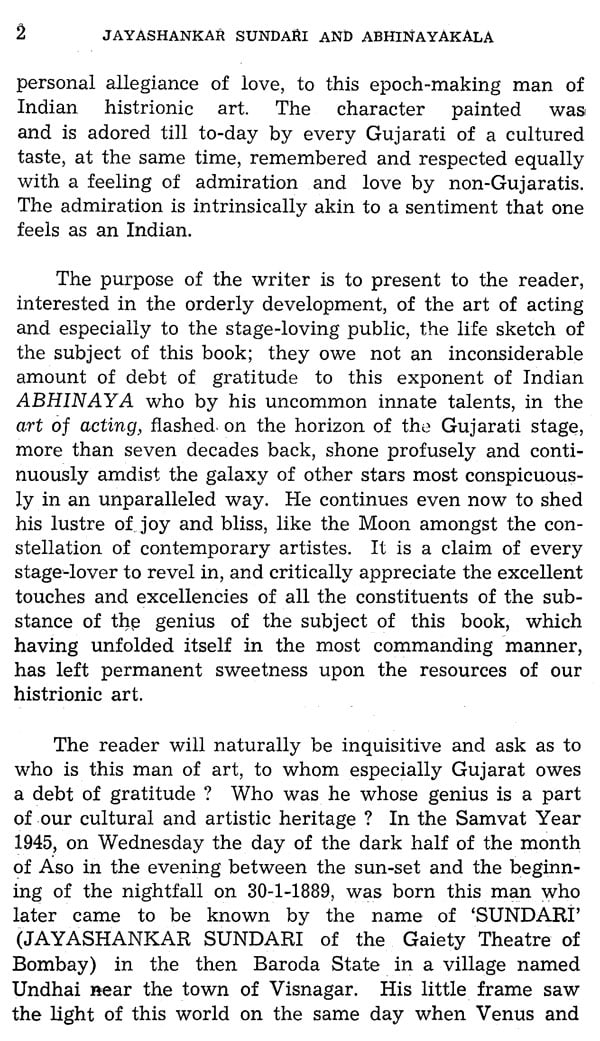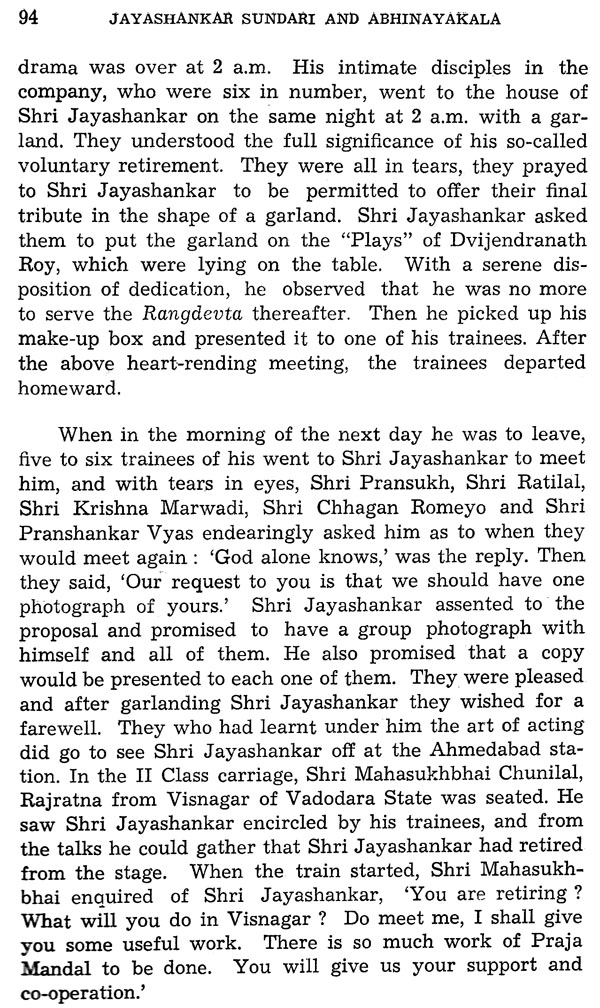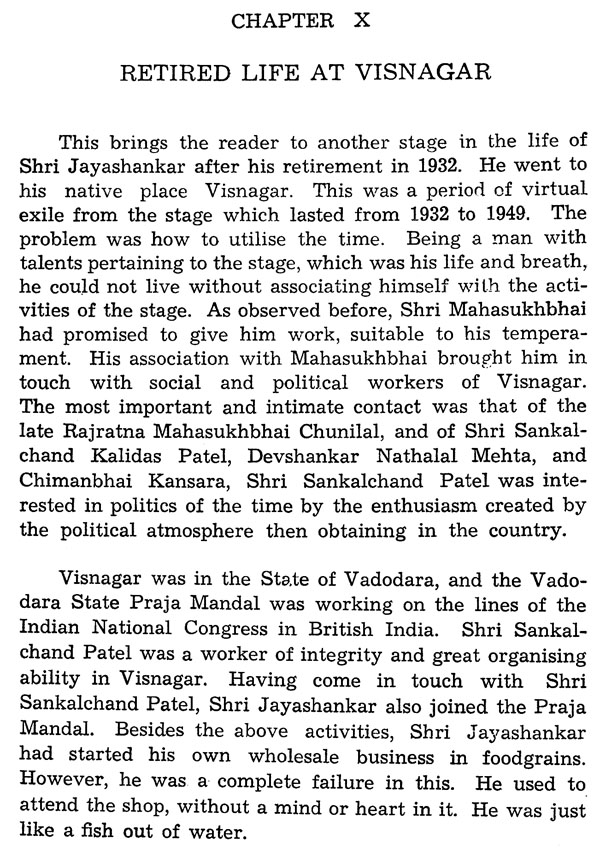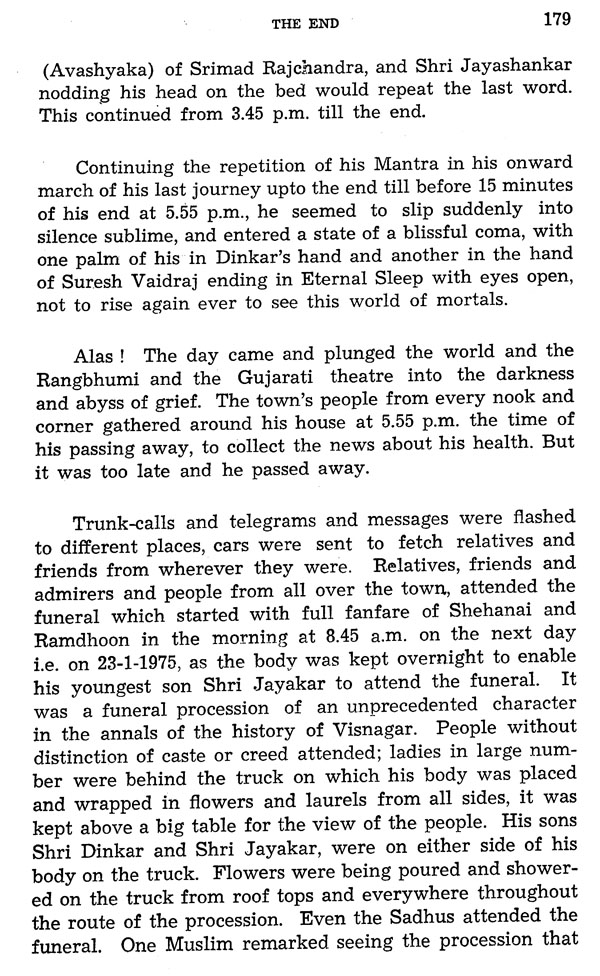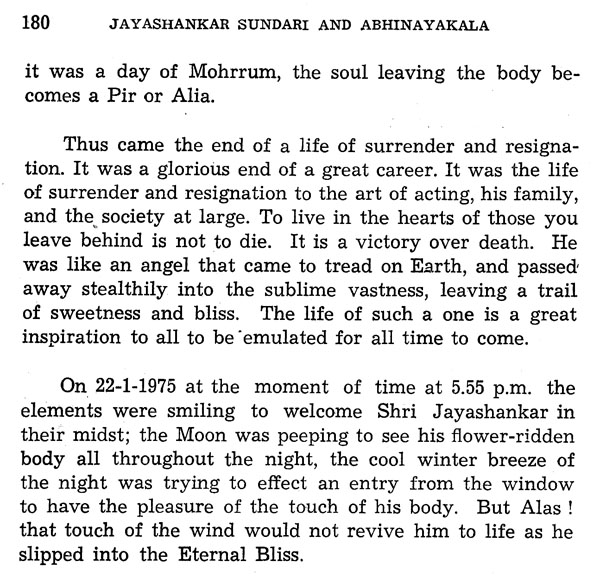About the Author The author, Shri Bhailal Bulakhidas Panchotia, B.A., LL.B., Advocate, High Court of Bombay, is the nephew of the late Shri Jayashankar Sundari, and this biography is an offering by in prayerful homage to the memory of his uncle.
This book is an attempt to give an account of the life of an epoch-making man of histrionics and his -4 art. If the enlightened reader finds anything lacking from the view-point of his standard of excellence, the same may be attributed to the writer.
Preface It was in the year 1932 when I was a college student studying in Bombay that the idea of writing a biography of the late Shri Jayashankar Sundari who was then alive sprang up in my mind. It was under peculiar circumstances when the idea cropped up. I had been to Visnagar in North Gujarat to spend my summer vacation in the company of my mother and maternal uncle, the late Shri Jayashankar Sundari. The subject of this sketch, the illustrious Shri Jayashankar Sundari, had retired from his stage activities, under some compelling circumstances which have been dealt with in this book. It was then that Shri Jayashankar at his native home in Visnagar, always practised Riaz in music when the late Shri Pandit Vadilal Shivram Nayak used to come from Vadnagar to give him company and help him in his practice of music. Both Pandit Vadilal and Jayashankar used to sit on the first floor of Shri Jayashankar's ancestral house in Visnagar, and Pandit Vadilal was vigilantly guiding Shri Jayashankar in his practice. I had the occasion to hear and be a listener of that practice. At the relevant time I was reading a book entitled Making of Literature by Scott James. I, being a student of English literature in my B.A. class, had to read this book which was prescribed in our course.
After his practice was over Shri Jayashankar's notice was attracted towards me, when I was reading the book. He asked me as to what it was. I showed him the book. He then asked me to read some passage out of it. I did. The passage was from the literary criticism by William Hazlitt. He was very much pleased to listen to the ideas of Hazlitt. I saw tears trickling down his cheeks and he went away to another room. I could visualise the agonising position that he had retired from the stage much against his will, and his ambition to do something remarkable in the field of histrionics and the stage appeared to be upper-most in his mind and heart.
Introduction The revival of Indian theatre took place soon after the British consolidated their position in India, in or about the year 1850, somewhere just before and at some places a little later. Gujarat had hardly any theatre before the so-called "mutiny", except a few folk performances at the most in open areas; but the real movement was started after 1875 onwards by Parsis pioneering and dominating in the whole of India, with their Persianised plays. They were then very popular to the extent that they had gone out of India to the for East to Cambodia and in 1885 even to London. It is a pity that later on this pioneering activity was much maligned by the Hindi writers, calling it "vulgar". Their performances were not only popular, but robust, monumental, moralistic, historical and of devotional character. Of course they were a bit loud, for want of a good theatre. The Hindi writers hardly then understood the meaning of the word "vulgar". The Parsis had their performances in Calcutta, even in Burma, then a British territory.
The Bengali theatre was first to establish itself, and a Russian visitor Mr. Lebodoff, and the British visiting companies contributed a lot. The great Girishchandra Ghosh, later on a devotee of Shri Ramakrishna Paramahansa, was responsible for the pioneers of the Bangalla stage.
Calcutta had multiple activities in this direction before the end of the century. Young Jayashankar, hardly ten, was inoculated in the field by a stalwart in DADABHAI THUTHI, one of the pioneers of the Parsi theatre. Those two years were a precious period for young Jayashankar, who coming to Bombay in the beginning of the century, started creating history of a magnitude which cannot be easily competed, or overpassed.
Book's Contents and Sample Pages

